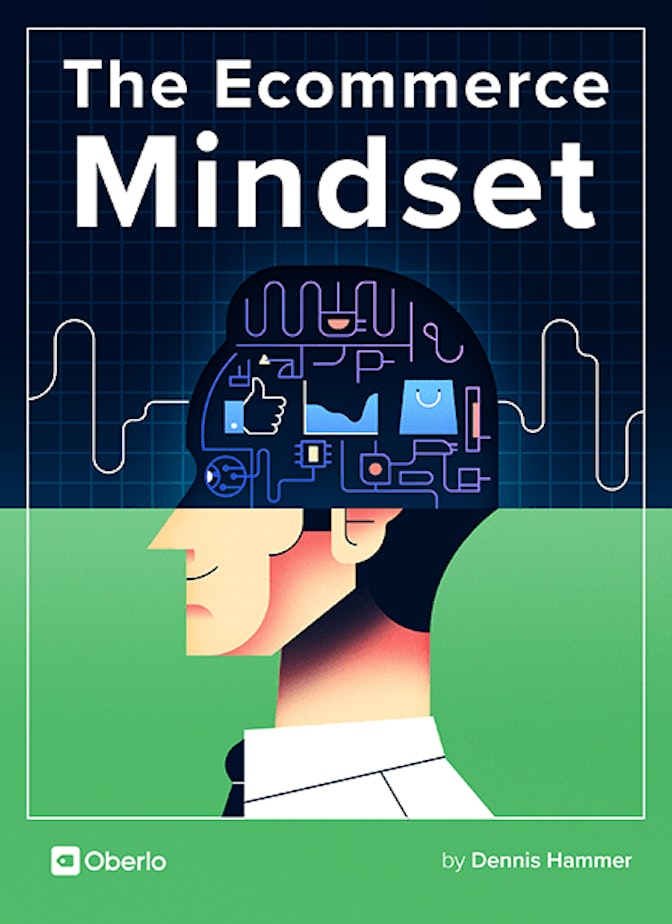As you work to grow your ecommerce store, you’ll undoubtedly spend a lot of time reading about marketing. Ecommerce store owners worry about marketing more than anything else.
But it’s easy to get caught up in the details of marketing and miss the point.
You stress about strategies and tactics, tools and resources, and “hacks” to drive business, but there’s a fundamental lesson you need to learn as early as possible. It’s a lesson most marketers never learn until they’ve failed a bunch (wasting time, money, and sanity).
So here’s the most important lesson you’ll ever learn about marketing:
Marketing is about reaching people.
It’s that simple.
The entire purpose of marketing is to make other people aware of your store and convince them why they should spend their money on you.
Facebook ads, content, social media, public relations, partnerships, and giveaways… These are all just tools you can use to reach people. A million tactics are available to you, but in the end, your goal is to connect with people and persuade them of your value.
No single tactic will propel you to overnight success. (Remember the beginning of this book? There’s no such thing as overnight success). There is no one technique that will drive all your sales. (In fact, relying on any one method to drive business would be dangerous.)
SEO, social media, blogging… They all take time.
They’re great long-term strategies, but they could take up to a year to start showing results, even if you invest a lot of time and money into them. By all means, build processes for these strategies and start plugging away.
But don’t rely on them for early traction.
Surely, you don’t want to wait a year for your first sale. You want sales this month. Early traction is important for any new business. For one, early success is highly motivational. It’s easy to drop into that “I can do it” mindset when you’ve got proof you can actually do it.
Moreover, early traction puts a little money in your pocket that you can reinvest for future growth. It’s easy to appropriate some money for Facebook ads when you don’t feel like that money is coming out of your own pocket.
Everything gets easier with a budget.
To get early traction, you’ve got to reach as many new targeted people as possible, as quickly as possible.

Don’t wait for someone else to do it. Hire yourself and start calling the shots.
Get Started FreeThe Old-Fashioned Way
The web is an incredible tool that connects millions of people at once.
Someday, you’ll post to Facebook and reach your 100,000 fans. One day, you’ll send an email to your 50,000 subscribers. Eventually, you’ll create a landing page for your 10,000 monthly visitors.
And all these people will share your pages and products with their friends, increasing your exposure. At some point, you’ll reach critical mass, where your audience begins to fuel its own growth, and word spreads until your business truly becomes a self-sustaining venture.
But this is the goal, and you’re nowhere near it just yet. In other words, if you want word to spread about your business, you’ve got to spread it yourself.
This means…
- Posting to an empty social media page is a waste of time.
- No one will care about (or even read) your press releases.
- Tweeting is just talking into the noise.
- It’ll be a long time before someone reads your blog content.
- It could be months before Google indexes your SEO pages.
- You don’t have any subscribers to read your emails.
You can’t leverage a following until you have one. Too many online marketers expect their customers to market for them. They dream of creating a Facebook post that goes viral, gets thousands of shares, and drives millions of clicks to their website.
But it’s unlikely to happen.
It could happen, but these are exceptions to the norm. And if they do happen, it won’t be for a while. The biggest social media powerhouses took years to build their following. You can’t rely on the virality potential of your social media posts to grow your business. (Remember: There’s no such thing as an overnight success!)
Plus, this sort of marketing doesn’t work unless you already have a fan base eager to share your posts for you. If you’re starting with an empty Facebook page and zero Instagram followers, how are you supposed to start something that goes viral?
Literally no one will see it.
If you want early traction, you have to meet new people the old fashioned way: By contacting them directly. You’ve got to send emails. (Thousands of them!)
Send emails to brands you might like to partner with. Most will say no, but you only need a couple to say yes. Make sure you offer them everything you can to help promote the partnership. Have a plan lined up if they respond.
Send emails to request guest-posting opportunities. Pitch them on a topic you’ll write that satisfies their audience, but also plugs your store. If they agree, create something so exceptional, they’ll want to post it.
Send emails to product reviewers or enthusiasts in your niche. You may have to send them a product to review. Offer to help them in any way you can (including with images and videos, if necessary). Come up with a plan to capitalize on their promotion if they agree.
Send emails to YouTubers. Ask them to feature you or your products in their video. Offer to help produce their video any way you can (maybe even with your own clip, or whatever video-editing skills you can contribute).
As an ecommerce store owner, a majority of your work will take place in your email client. Get used to it. Get comfortable writing friendly and positive emails. Learn how to write better emails, so people actually read them and respond to you. Reinvent yourself as someone who’s always willing to help fellow businesses. (Just make sure you get something out of it too.)
Numb Yourself to Rejection
Don’t be afraid of rejection. It goes hand-in-hand with failure. Learn to feed on it.
As you reach out to people, some will tell you you aren’t worth their time and you don’t offer much in return.
They’re right. But don’t let that eat at you.
Listen to their complaints so you can find ways to overcome them, but don’t allow rejection to become a weight on your shoulders.
Say you’re a popular blogger. Some small-time ecommerce store reaches out to you for a product review. It has no following to help promote the review (no social media fans, no email subscribers, and no readers of their own). They offer to send you the product for free, but so does everyone else who wants a review, and you’ve got 10 other offers in your inbox, none of which will take 4 to 5 weeks for you to receive the product. As a popular blogger, would you really bother with this young store?
Sure, you have to reach out to many people to get some responses. It may take time to find the right people who have needs you can meet or aren’t so busy they can afford to ignore you.
That said, don’t worry about coming across as a spammer as you send out your flurry of emails. You won’t turn people off just because they don’t like being sold to. Most people won’t be annoyed by your emails. If they are, they’ll quietly ignore you. Some will politely decline, but the risk of ruining your brand by pissing someone off this way is negligible.
Once you have an audience that loves your store (social media followers, email subscribers, past customers, and a community of people who actually know your brand name), you’ll be able to leverage them to gather even more followers. And once you have regular customers, you can build a budget to experiment with new techniques and tools.
Three Qualities You Need to Meet New People
Creating new relationships and holding onto them is a skill like any other. If you don’t have much experience meeting new people, you’re probably bad at it. The best way to learn is to immerse yourself in relationships. Talk to as many people as possible about your store and the value you provide.
To do this well, you need three important qualities.
1. Sweat
Normally, relationships are easy. If you like a person, you spend time together. If you don’t like them, you don’t speak to them anymore.
Easy.
In business, however, relationships take work. You may have to spend time and work with someone you dislike. You have to invest extra effort into sounding pleasant via email, even when you might not feel that way. And you have to take steps to reach out and nurture that relationship, even when you don’t have anything to talk about.
Think of your business relationships like a garden. With sweat and labor, you can nurture your plants (your contacts) until they bloom. This may take weeks, months, or even years of careful cultivation, but eventually, they’ll bear fruit.
2. Focus
Staying focused is tough, especially after dealing with rejection. It’s easy to let yourself get sidelined by reddit and YouTube when you wake up to yet another day of no sales. Suddenly, mundane chores like filling the dishwasher and folding your clothes seem more attractive.
To top it all off, the blogosphere pulls you in a million different directions. You probably get emails from one content source after another, each advocating for some new hot tactic that’s guaranteed to blow up your store.
Don’t let their praise interrupt your focus. Stick to your own strategy.
Staying focused on your goals is a major topic, so here’s some further reading.
- 5 Ways To Stay Focused In A World Full Of Distractions
- How to Stay Focused If You’re Assigned to Multiple Projects at Once
- 8 Ways to Stay Focused on Your Goals
- How to Stay Focused: Train Your Brain
- 9 Immediate Tips To Stay Focused on Your Goals
3. Persistence
Failure is inevitable.
Don’t tell yourself, “Failure could happen to me, and I’ll just have to push through.” That’s a good sentiment, but it’s inaccurate.
Instead, tell yourself, “I will fail at many things. Failure is part of being an entrepreneur. I shouldn’t just expect to fail. I should seek failure, because failing is learning.”
To connect with people (and get early traction), you can’t settle for defeat when things get tough.
No one replies to your emails? Change your copy and keep trying.
No one wants to review your products? Sweeten the deal and keep trying.
No brand wants to partner with you? Create a better offer and keep trying.
Being persistent means pushing on when everyone is telling you “No.” It means staying up 15 minutes later to send out a few more emails. It means following up when someone fails to respond to you. It means, instead of saying, “OK, thanks for your time,” you respond, “What can I do to make this work?”
Dig deep for the kernel of hope that drove you to open your ecommerce store in the first place. Rely on it as one of your strengths so you can take another step.
Then another.
And another.



